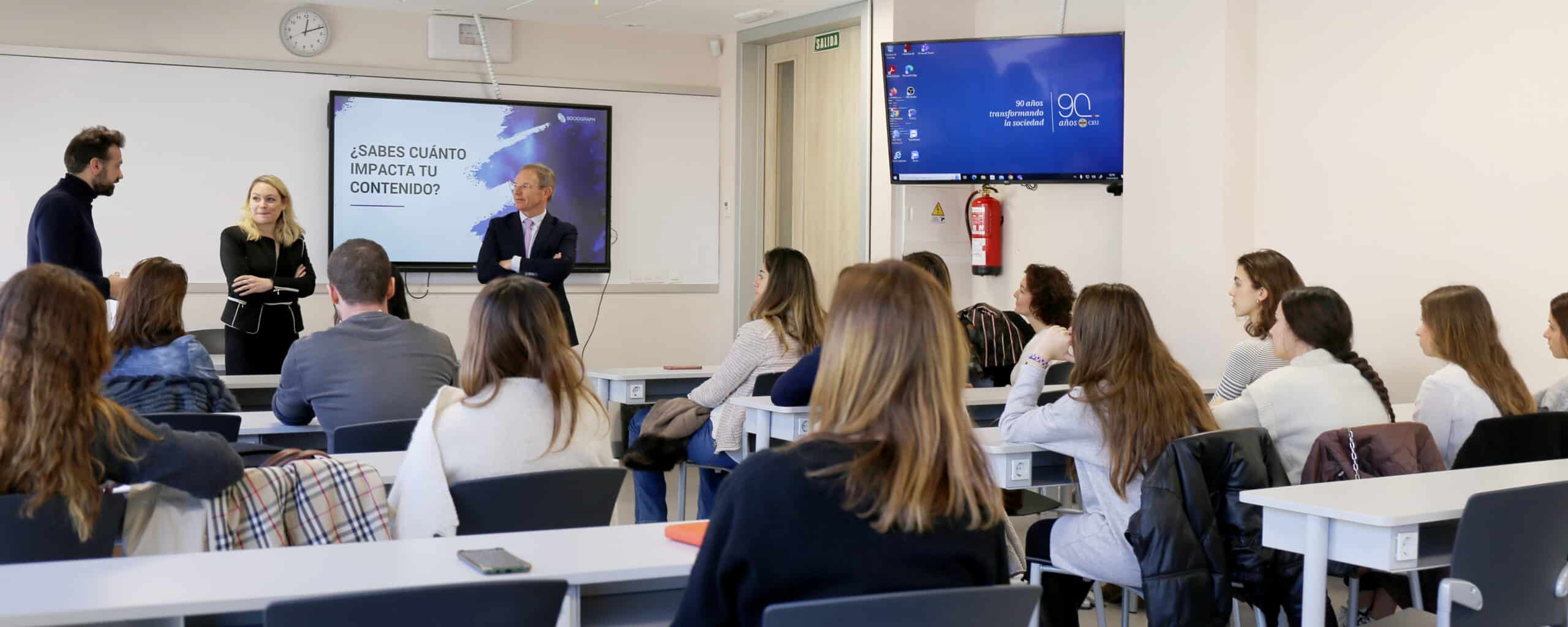
Aula Sociograph: the importance of neuromarketing
21 June, 2023
Digitalization and environmental transition will mark employment the next decades
23 June, 2023Randstad Research and the Fundación Universidad San Pablo CEU have presented the report Young graduates and Employability, an exhaustive study that analyses the employment challenge among youngsters with higher education. The presentation ceremony was attended by Valentín Bote, Firector of Randstad Research; Javier Tello, Managing Director of la Fundación Universidad San Pablo CEU and Rodrigo Martín, senior advisor to the General Management of the Fundación Universitaria San Pablo CEU.
The report Young graduates and employability highlights the importance of choosing studies that correspond to the talent needs of companies. This decision is a determining factor in the employability of graduates, a concept that is not only related to having a job, but also to the ease of having access to it, the time invested in achieving it or the salary.
This study reveals that the employment and training situation of young people in Spain is different from the rest of Europe. The proportion of active youngsters with high qualifications stands at 54.4% of the total, while the European average is 43.4%. However, unemployment rate for this segment is 14% in Spain compared to the European average of 6.5%.
Moreover, only 23.4% of Spanish youngsters have an average level of qualification – including vocational training, which is currently highly sought after – while in the EU the proportion is 45.2%. In both cases, the explanation may be as simple as the fact that the training available for them does not match companies’ needs.
Young graduates and employability insists on the importance of higher education in finding a job, while recalling the importance of the choice. Five years after graduating, around 90% of university graduates are employed, but there are large differences depending on the academic qualification.
96.3% of computer science graduates are employed five years after graduation, followed by health and social services (92.1%) and engineering, industry and construction (92.1%). In contrast, 77.1% of arts and humanities graduates are employed after this period, afterwards those with higher education (82.2%) and science (83.6%).
Employability, not just getting a job
Salaries earned by graduates in their first job also depend strongly on their choice of studies. The report points out that more than half (55.9%) earned less than 1,000 euros per month in their first job, but the differences between degrees are significant. Thus, graduates with the highest salaries in their first job are graduates in Nautical and Maritime Transport (with an average of 1,645 euros), Medicine (1,609) and Nursing (1,409), while the lowest earners are Geography and Spatial Planning (880), Archaeology and Speech Therapy (both with 880 euros).
The time it takes graduates to find a job is also a factor to consider. According to the report, half of the graduates (51%) had their first job less than three months after finishing their studies. But again, these figures vary between degrees. Moreover, the results are related to the unemployment rate, so that some of the degrees with the lowest unemployment rate are also among those where it is possible to find a first job in the shortest time.
However, in many of the degrees in which it is a priori easier to find a job, between 10% and 20% of graduates take more than a year to find their first job. In turn, there are degrees such as Medicine, which despite having a very low unemployment rate (2.1%), the majority (84.6%) take six months or more to find their first job. In contrast, this percentage among Marine Science graduates is 60%, even though their unemployment rate is considerably higher (15.4%).







